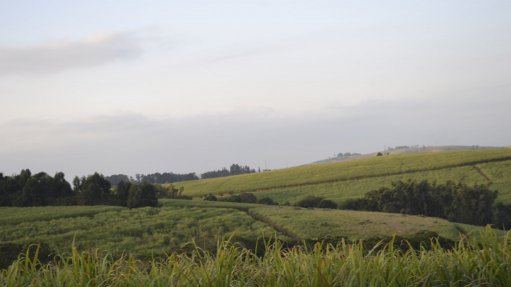
Industry body SA Canegrowers has appealed to government to implement measures to mitigate the impact of loadshedding on sugarcane growers, warning that its data shows that the South African sugar industry is set to lose R723-million this year as a result of loadshedding.
"With milling giant Tongaat Hulett in business rescue and the destructive Health Promotion Levy [also known as the sugar tax] already hampering the industry, these losses are potentially catastrophic for growers and the industry’s workers," it states.
It points out that loadshedding is affecting 1 135 irrigated growers who employ more than 10 000 workers. An estimated 34% of South Africa’s sugarcane is produced in irrigated areas including Komatipoort and Malelane, in Mpumalanga; and Pongola, in KwaZulu-Natal.
Growers are expected to incur more than R189-million in additional energy costs this year on account of the disruption to irrigation schedules. Most irrigated growers in KwaZulu-Natal and Mpumalanga operate on a Ruraflex system, which allows them to pay a lower tariff for operating during low demand times.
But the converse also applies – growers pay a significantly higher rate for pumping during peak demand times. As a result of loadshedding, growers have been forced to irrigate whenever electricity is available, regardless of demand.
In addition to the increased cost of energy, growers also face yield losses as they have fewer hours of continuous energy supply. Growers need a minimum of six hours of continuous energy for proper irrigation.
As a result of the intermittency of the power supply, disrupting irrigation, irrigated growers will lose up to 40% water capacity. The resulting loss of yield could amount to more than R723-million.
SA Canegrowers’ scenario modelling shows that continuous loadshedding at Stages 4 to 6 will cost growers more than R723-million this year. An escalation to Stages 6 to 8 could cost the industry more than R1.8-billion.
"Anything beyond Stage 8 could cost the industry more than R2.4-billion," the industry body notes.
The continuation of loadshedding without any arrangement to enable irrigation will also have long-term implications, it adds.
"Sugarcane stalks left in the ground can produce cane for up to ten years. Insufficient irrigation not only reduces cane quality and causes yield losses, but it will also lead to increased stool mortality, significantly shortening the lifespan of the cane," it points out.